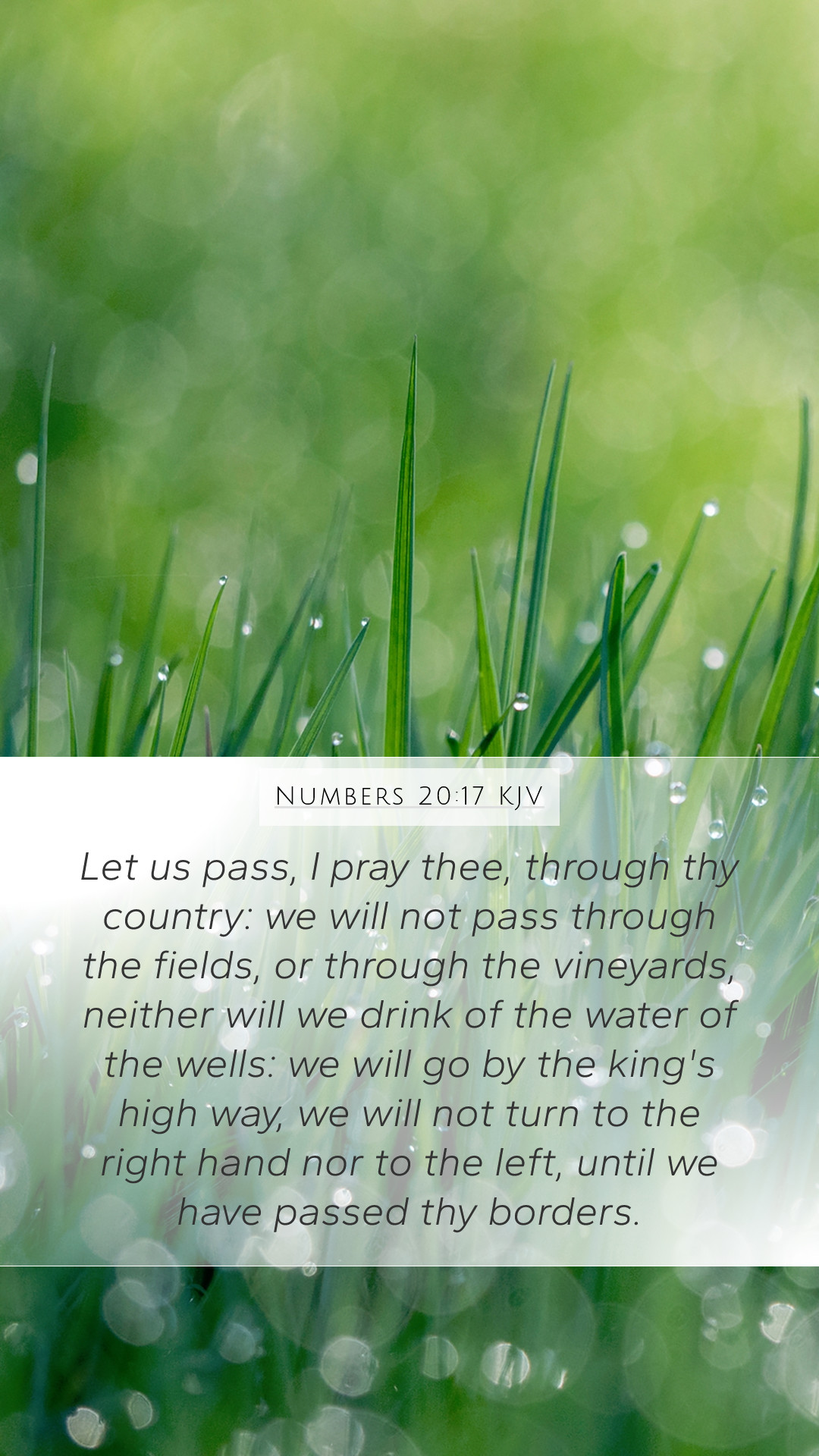Bible Verse Meaning: Numbers 20:17
Verse: "Let us pass, I pray thee, through thy country: we will not pass through the fields, nor through the vineyards, neither will we drink of the water of the wells: we will go by the king's highway, we will not turn to the right hand nor to the left, until we have passed thy borders."
Overview
Numbers 20:17 encapsulates a moment in the journey of the Israelites as they seek passage through Edom. This verse highlights the interactions between Israel and Edom, emphasizing the themes of diplomacy, respect, and the right to traverse land without conflict.
Commentary Insights
Matthew Henry's Commentary
Matthew Henry underscores the contextual significance of the Israelites' request to pass through Edom peacefully. He points out that the Israelites desired to show respect for Edom's land, exemplifying their intention to avoid conflict and maintain a peaceful approach. This reflects a critical lesson in humility and prudence in leadership.
Albert Barnes' Notes on the Bible
Albert Barnes elaborates on the insistence of the passage by emphasizing the importance of a direct route, termed "the king's highway." Barnes interprets this as symbolizing a path that is lawful and recognized. He further stresses that the Israelites offered to forgo possessions and provisions, demonstrating their desire not to invade but rather simply to pass through.
Adam Clarke's Commentary
Adam Clarke provides a historical context, noting that the Edomites, descendants of Esau, shared lineage with the Israelites. Clarke highlights that this kinship adds weight to the request made, as it reflects an expectation of brotherly respect and cooperation despite the historical tensions between the two nations. He also emphasizes that the Israelites aimed to follow God's perceived direction while maintaining civil relations.
Analytical Reflections
- Respect for Boundaries: The Israelites' request shows a profound respect for the property of others and a desire to avoid unnecessary conflict.
- Importance of Communication: The approach underscores the significance of clear communication when seeking assistance or permissions from others.
- Humility in Requests: The manner in which they requested passage—willing to remain on the main roads—demonstrates humility and respect for the residents’ rights.
- Interconnected Histories: Understanding the historical context provides insight into how the lineage of the Edomites and Israelites affected their interactions.
Cross References
- Genesis 25:23: Details the birth of Esau and Jacob, establishing the historical context of the Edomites and Israelites.
- Exodus 12:37: Discusses the Israelites' exodus from Egypt, leading to their journey mentioned in Numbers.
- Deuteronomy 2:4-6: Explores God's command concerning interactions with Edom during Israel's journey to the Promised Land.
Application in Bible Study
This verse serves as a vital example for individuals and study groups assessing prompts for Bible study insights and understanding Scripture. The dynamics of communication and respect in human interactions, especially regarding sensitive matters such as land and 'ownership,' can be reflected in modern settings. It cultivates discussions about Bible study topics relevant to establishing peaceful relationships and understanding cultural contexts, drawing parallels with current events.
Conclusion
The verse encapsulates profound lessons in diplomacy, respect, and the significance of peaceful communication while acknowledging one's heritage and community. In the exercise of Biblical exegesis, we find rich layers of meaning that encourage readers to reflect upon their methods of interaction in their lives—making it a valuable addition to any Bible study guide.


